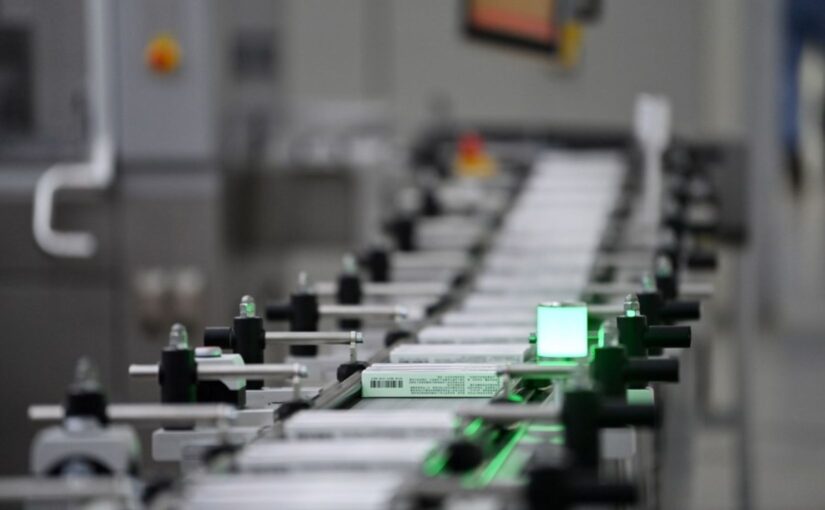The following article from China Daily reports on an extremely promising Chinese innovation in the treatment of diabetes: “Doctors in Shanghai have, for the first time in the world, cured a patient’s diabetes through the transplantation of pancreatic cells derived from stem cells.” The patient has been able to function normally without insulin injections for nearly three years.
Up to now, it has been possible to treat severe diabetes patients with pancreatic cell transplantation, but the shortage of donors and the complexity of the technology have meant that clinical needs are not currently being met. The doctors at Shanghai Changzheng Hospital have shown that it is possible to restore normal insulin production using pancreatic cells derived from the patient’s own stem cells – thus not requiring a donor. Yin Hao, director of the hospital’s Organ Transplant Center, commented: “Our technology has matured and it has pushed boundaries in the field of regenerative medicine for the treatment of diabetes.”
Timothy Kieffer, a professor in the department of cellular and physiological sciences at the University of British Columbia, Canada, is cited by South China Morning Post describing the study as “representing an important advance in the field of cell therapy for diabetes.” If the results of the Shanghai study can be reliably reproduced, “it can free patients from the burden of chronic medications, improve health and quality of life, and reduce healthcare expenditures”.
The funding sources for the study were the Chinese Academy of Science, the National Basic Research Program of China, the National Natural Science Foundation of China, the Science and Technology Commission of Shanghai Municipality, and the Shenkang Project. The study has been published in the journal Cell Discovery.
Doctors in Shanghai have, for the first time in the world, cured a patient’s diabetes through the transplantation of pancreatic cells derived from stem cells.
The 59-year-old man, who had Type 2 diabetes for 25 years, has been completely weaned off insulin for 33 months, Shanghai Changzheng Hospital announced on Tuesday.
A paper about the medical breakthrough, achieved after more than a decade of endeavor by a team of doctors at the hospital, was published on the website of the journal Cell Discovery on April 30.
It is the first reported instance in the world of a case of diabetes with severely impaired pancreatic islet function being cured via stem cell-derived autologous, regenerative islet transplantation, the hospital said. The most common pancreatic islet cells produce insulin.
Diabetes poses a serious threat to human health. Medical experts said that poor blood sugar control over a long period can lead to severe complications, including blindness, kidney failure, cardiovascular and cerebrovascular complications, and amputation. Life-threatening situations may also occur due to hypoglycemic coma, and ketoacidosis, which happens when the body begins breaking down fat too quickly.
China is the country with the largest diabetic patient population. There are 140 million diabetes patients in the country, of whom about 40 million depend on lifelong insulin injections, according to the International Diabetes Federation.
Experts said severe diabetes patients struggling with blood sugar control can only be effectively treated by minimally invasive transplantation, which injects islet tissue extracted from the pancreas of a donor.
However, due to factors such as a severe shortage of donors and the complexity of the islet isolation technology, it is hard for such transplantation to meet current clinical needs. That made how to regenerate human pancreatic islet tissue on a large scale in vitro a worldwide academic focus, the team in Shanghai said.
Yin Hao, a leading researcher on the team and director of the hospital’s Organ Transplant Center, said they used the patient’s own peripheral blood mononuclear cells and reprogrammed them into autologous induced pluripotent stem cells. They used technology they devised to transform them into “seed cells” and reconstituted pancreatic islet tissue in an artificial environment.
“Our technology has matured and it has pushed boundaries in the field of regenerative medicine for the treatment of diabetes,” said Yin, whose team conducted the research with scientists from the Center for Excellence in Molecular Cell Science at the Chinese Academy of Sciences.
He said the patient, who was at serious risk of diabetes complications, had a kidney transplant in June 2017 but had lost most pancreatic islet function and relied on multiple insulin injections every day.
The patient received the transplantation in July 2021. Eleven weeks after the surgery, he was weaned off external insulin, and the dose of oral drugs for sugar-level control was gradually reduced and completely withdrawn one year later. “Follow-up examinations showed that the patient’s pancreatic islet function was effectively restored, and his renal function was within normal range,” Yin said. “Such results suggested that the treatment can avoid the progression of diabetic complications.”


One thought on “Breakthrough by Shanghai doctors uses stem cells to cure diabetes”